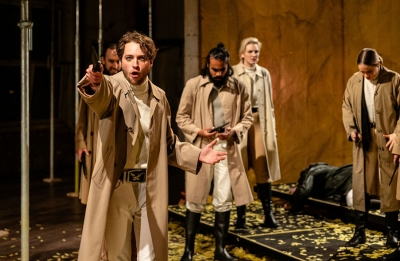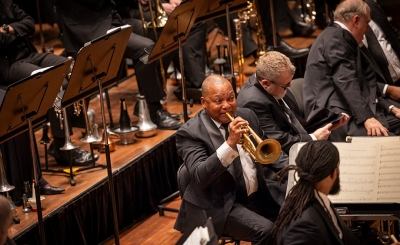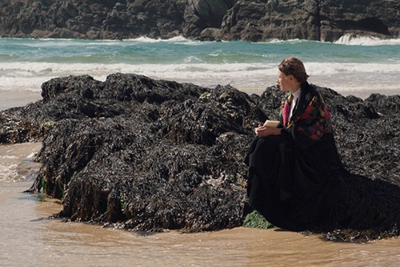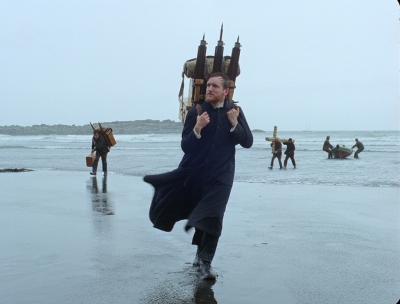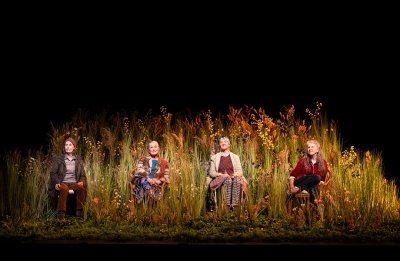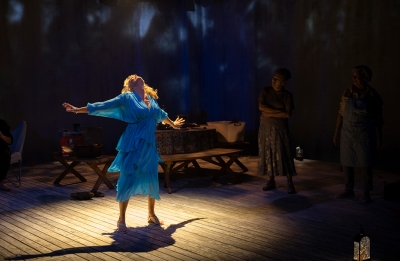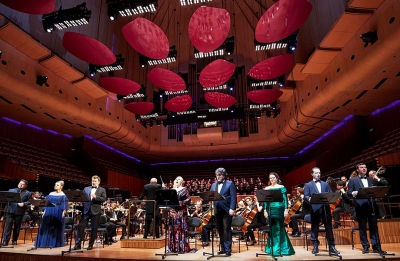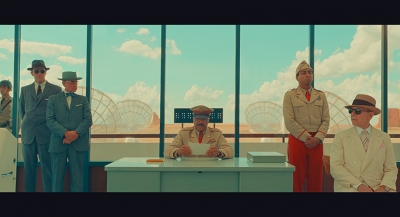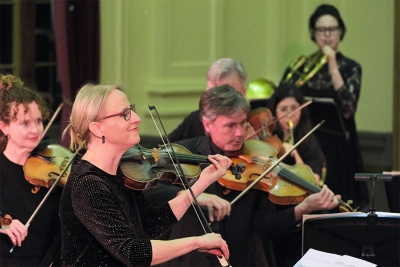Arts
Film | Theatre | Art | Opera | Music | Television | Festivals
Welcome to ABR Arts, home to some of Australia's best arts journalism. We review film, theatre, opera, music, television, art exhibitions – and more. To read ABR Arts articles in full, subscribe to ABR or take out an ABR Arts subscription. Both packages give full access to our arts reviews the moment they are published online and to our extensive arts archive.
Meanwhile, the ABR Arts e-newsletter, published every second Tuesday, will keep you up-to-date as to our recent arts reviews.
Recent reviews
In many ways, William Shakespeare’s Julius Caesar (almost certainly 1599) is a director’s rather than an actor’s play. While there have been brilliant performances associated with it – from Marlon Brando and John Gielgud to Ben Whishaw and our own Robyn Nevin – it is really the directors who make sense of it on stage, and have moulded its politics to suit the times. John Philip Kemble and William Charles Macready defined the play in the nineteenth century, with elaborately realistic sets and massive crowds, emphasising Brutus as a revolutionary figure.
... (read more)When Wynton Marsalis’s début album appeared on CBS Records in 1982, with its moody, pensive black and white cover portrait of the then twenty-year-old trumpeter, few could have predicted where his career was headed. Sure, he had performed Haydn’s Trumpet Concerto with the New Orleans Philharmonic at fourteen, and further honed his craft in the trumpet chair of Art Blakey’s Jazz Messengers.
... (read more)Peter Evans is Bell Shakespeare’s Artistic Director. For Bell Shakespeare, Peter has directed Hamlet, In A Nutshell, A Midsummer Night’s Dream, The Miser, Antony and Cleopatra, Richard 3, Othello, Romeo And Juliet, As You Like it, The Dream, Tartuffe, Phèdre, Macbeth, Julius Caesar, The Tempest, The Two Gentlemen Of Verona, and Intimate Letters with the Australian Chamber Orchestra. Peter was Associate Director at Melbourne Theatre Company from 2007–10, and has directed for several other companies.
... (read more)Veteran filmmaker, Frederick Wiseman, widely considered the pre-eminent documentarian to emerge from the 1960s, has always said he considers his approach closer to that of a novelist rather than a director.
... (read more)In three films by Icelandic director Hlynur Pálmason, there is a moment of rupture in which the narrative is held up and we see instead a montage of various characters standing still and looking directly at the camera – an example of what has been called a planimetric shot. This particular type of shot, in which the camera is positioned directly perpendicular to its subject, appears to flatten characters against backgrounds on screen, in much the same way that a portrait photograph might.
... (read more)Escaped Alone ★★★★★ and What If If Only ★★★1/2
Voices in Caryl Churchill’s plays swell and ripple and surge, but they are an unquiet river in whose streambed is hidden the unspeakable, the incomprehensible. Like Samuel Beckett and Harold Pinter – the two playwrights with whom she is most often compared – Churchill is a doyenne of the unspoken, silences manifesting as much through their presence as their absence.
... (read more)The Weekend is a Trojan horse of a play. In setting and humour, the production shares a family resemblance to many of David Williamson’s comedies of middle-class manners. The scene is a beach house on the Central Coast of New South Wales over Christmas. Our characters are three white women of seeming privilege in their early seventies who throw around one-liners about sourdough bread and poke fun at the excesses of enfant terrible male theatre directors (think Simon Stone or Benedict Andrews). The women even dance, Big Chill style, to a Carole King song as they reminisce about their youth.
... (read more)Amilcare Ponchielli (1834–86) wrote ten operas, but only one of them is still performed – La Gioconda – and few attending Opera Australia’s concert performances in Sydney will have heard it often.
... (read more)Wes Anderson’s films divide audiences; not so much because of their content (rarely does he openly court controversy) but because of their style. When the trailer for Anderson’s latest film, Asteroid City, first appeared online, those eager to dismiss it on social media wrote: ‘Wes Anderson has made his film again.’ It is a comment that cuts both ways.
... (read more)Midsummer Dreams: Mendelssohn Scottish and Beethoven Eight
A century ago, as Australia’s nascent capital planned its performing-arts future, it opted for a ‘commodious’ assembly hall, serving conference and recreational purposes, and doubling as a municipal theatre. Completed in 1928, Albert Hall was to be the ‘centre from which will radiate all those aspirations that are truly national’, as then Prime Minister Stanley Melbourne Bruce pompously intoned at its opening. Since then, the Hall’s record has been less illustrious, often housing carpet or shoe sales, community fairs or eisteddfods. With its peeling ceiling, drooping curtains, winter draughts, and cramped, overly elevated stage, it has proven a challenge to several generations of concert entrepreneurs.
... (read more)

